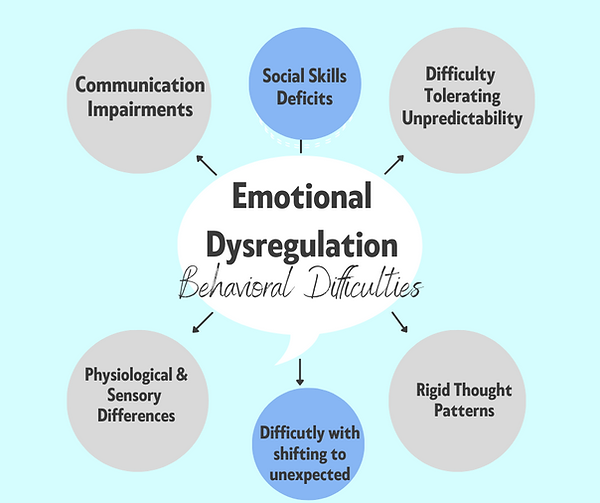DEVELOPMENTAL DISABILITIES
Evidence-Based and Empirically Supported
Practices in I/DD
Applied Behavioral Analysis
Positive Behavioral Supports
Cognitive Behavioral Therapy
Mindfulness-Based Therapy
Visual Supports and Technology
Interpersonal Therapy and Social Skills Training

It wasn’t that long ago it was thought that individuals with intellectual developmental disabilities could not experience the full range of psychiatric disorders and mental health concerns, nor could they benefit from mental health therapy. Emotional and mental health symptoms were attributed to behavioral difficulties, and individuals were given behavior “management”. In fact, one in three individuals with intellectual and developmental disabilities (I/DD) will have a mental illness due to risk factors that increase their vulnerability to behavioral and emotional difficulties.
Individuals with I/DD are much more likely to be victims of trauma and abuse (5x times more likely to suffer sexual abuse), often have fewer social supports, have acquired a sense of learned helplessness, experience lower self-esteem, live with increased family stress (maternal), and often have fewer coping skills. In addition, the organic nature of the disability and increased likelihood of other medical involvement put individuals with I/DD at a much higher risk of difficulties with mental health. Unfortunately, many medical and mental health professionals are often not trained specifically for recognizing, assessing, and treating behavioral health difficulties in individuals with disabilities and often unknowingly express a clinical bias known as “diagnostic overshadowing”, a process of attributing behavioral health symptoms solely to the disability instead of the mental health condition (Reiss, Levitan, & Szyszko,1982; Reiss, Levitan, & McNally, 1982; Reiss & Szyszko, 1983).
Dr. Massimo has worked with children and adults who are dually diagnosed with intellectual disability and mental illness (IDD/MI) for over 30 years and has earned the NADD Competency-Based IDD/MI Dual Diagnosis Clinical Certification, NADD-CC. At the Austin Counseling Center for Women & Families (ACCWF), mental health services are tailored to the preferences of individuals with I/DD, their level of understanding, the preferred mode of communication, and their strengths, needs, and other associated conditions. Behavioral health services at the ACCWF provide evidence-based mental health practices and empirically supported treatments, trauma-informed care, and positive behavioral supports that align with the Ohio DODD Positive Culture Initiative for individuals with Developmental Disabilities.

